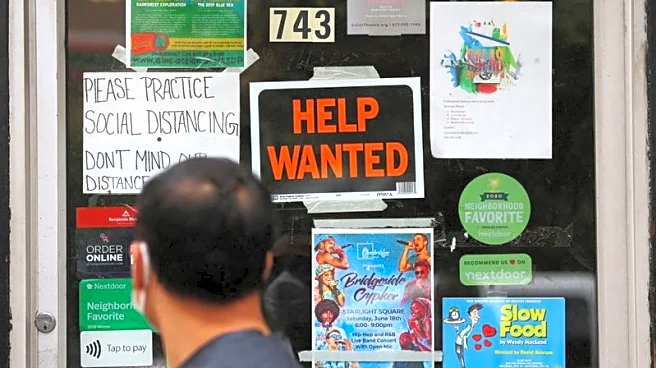What's Happening?
Florida's vacation rental market is experiencing a significant downturn, with occupancy rates for short-term rentals projected to fall to 58% in 2024, a sharp decline from the pandemic highs of 75% in 2021. This drop is attributed to an oversupply of rental properties and decreased demand, leading many owners to convert their properties to long-term leases or exit the market entirely. The state's aggressive construction boom during the pandemic has resulted in a saturated housing market, with a 22% increase in available homes nationwide. This has led to price cuts and foreclosures, particularly in areas like Palm Coast, Gainesville, and Panama City.
Why It's Important?
The decline in Florida's vacation rental market has broader implications for the state's economy and real estate sector. The oversupply of rental properties and decreased demand could lead to financial losses for property owners and investors, impacting local economies reliant on tourism. The shift from short-term to long-term rentals may not be seamless, as furnished units may not appeal to year-round tenants, leading to additional costs for owners. The situation highlights the risks associated with rapid real estate development and the need for strategic planning to balance supply and demand.
What's Next?
As the market adjusts, property owners may need to explore alternative strategies to mitigate losses, such as improving rental property management and enhancing guest experiences. The industry may also see increased consolidation, as evidenced by Casago's acquisition of Vacasa. Regulatory changes and improved service quality could play a role in stabilizing the market. Stakeholders, including local governments and real estate professionals, may need to collaborate to address the challenges and support sustainable growth in the vacation rental sector.












